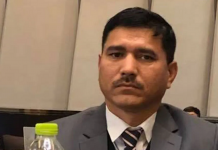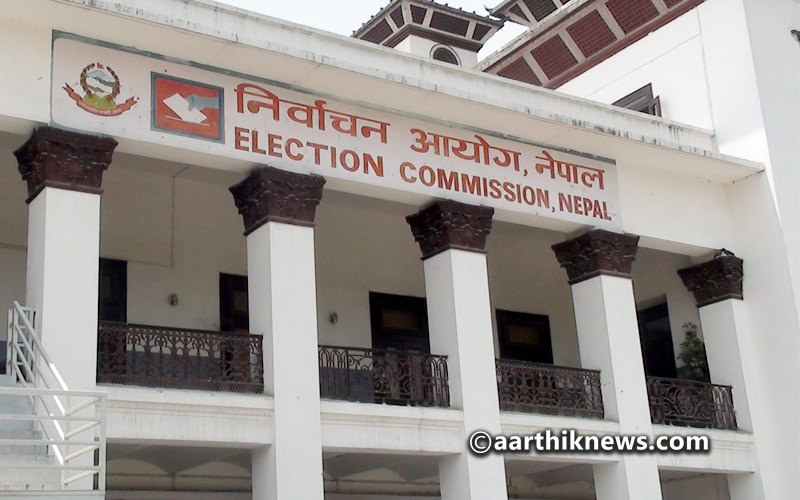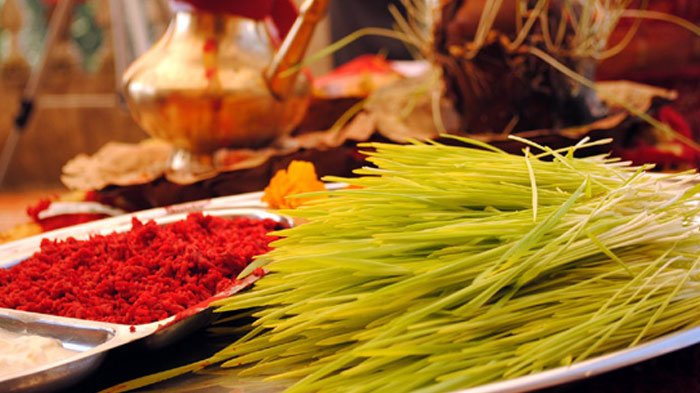Kathmandu, June-28 The Constitution Drafting Committee has prepared the first draft of the new constitution comprising 35 parts, 294 Articles and seven schedules.
Some of the issues, however, are yet to be resolved before the document gets final touches.
Issues related to reappointment of office bearers of constitutional bodies after the constitution is promulgated; where should the term “pluralism” be inserted; and whether to include proportional representation in all government appointments are yet to be agreed upon, according to Unified CPN-Maoist Vice-chairman Narayan Kaji Shrestha.
“The four parties — Nepali Congress, CPN-UML, UCPN-M and MJF-D — sat twice in the morning and evening to settle the issues. As the issues are yet to be agreed upon, the four-party meeting, to resume tomorrow morning, will try to settle them,” Shrestha said.
The CDC is required to complete its task tomorrow itself as was mandated by the CA full House earlier.
NC has been lobbying for continuing with the office bearers of constitutional bodies, while UML and UCPN-M have been pushing for their reappointment.
The division of parties on these issues was reflected in the CDC that met after the four-party meeting late evening. Kanshinath Adhikari of UML and Ganeshman Pun of UCPN-M demanded that the cow be removed as national animal and replaced by the rhino, sources said.
Some Nepali Congress CA members expressed discontent with the terms — “to ensure economic equality” and “to construct basis of socialism” — in the preamble saying economic equality is possible only in communism while the term socialism without adjective “democratic” reflects communist socialism.
CDC members Shekhar Koirala, Kamala Panta, Shankar Bhandari, Jagadishwar Narsingh KC and Sharada Paudel expressed reservation on the topics at a separate meeting of the party’s CDC members held in Singha Durbar today, according to sources. Some of them, including Bhandari, also demanded removal of the provision of secularism.
PROVISIONS OF THE DRAFT CONSTITUTION:
The first draft has 32 fundamental rights, including right of mass media, right of crime victim, right against untouchability and discrimination, right against exploitation, right to live in clean environment, right to language and culture, right to employment with unemployment allowance, right to food, right to residence, rights of children, rights of Dalit, rights of senior citizens, right to social security and consumer rights with provision of compensation.
A citizen will have to serve the country compulsorily when the country needs the person’s service, states the provision under citizen’s responsibly in Article 52.
Children will get citizenship certificate by descent if both of their parents — father and mother — are Nepali citizens at the time of their birth. A child whose father or mother has acquired Nepali citizenship certificate by birth at the time of commencement of the new constitution will also get certificate of descent from the name of either mother or father.
If a foreign man marries a Nepali woman and wants to get naturalised citizenship, he will have to live 15 years in Nepal after relinquishing his foreign citizenship certificate. However, if a Nepali man is married to a foreign woman, the woman will get naturalised citizenship certificate immediately after getting married.
A candidate, who is defeated in elections for parliament, will not be eligible to become minister during the period of that legislature. The number of cabinet members of federal (central) government will not exceed 25.
Khas and Arya (Brahmin, Thakuri, Sanyasi or Dasnami) community will also be included under the election system of proportional representation.
The tenure of House of Representatives will be five years but it can be extended by one more year if a state of emergency is declared.
There will be a parliamentary committee with maximum 11 members to investigate and recommend to the parliament impeachment of President, Vice-president, Speaker and office bearers of constitutional bodies.
The number of the Cabinet of state government will not exceed 20 per cent of the total members of the state assembly. There will be a judicial committee in each VDC and municipality to settle local lawsuits under their jurisdiction. Each village assembly will have 45 members apart from chairman and vice-chairman and each municipal assembly will have minimum 55 members apart from the Chair and Vice-chair.
Each state, VDC and municipality can make provisions for creating government service for their administrative operation. The government can form commission to delineate election constituencies under the leadership of a former judge of the Supreme Court.
The government can form a language commission within one year after the commencement of the new statute to study and recommend issues relating to language.
President, Vice-president, Prime minister and Speaker will be re-elected within one month after the CA transforms to parliament after the commencement of the statute. Election of local bodies will be held six months after commencement of the new constitution.
Local bodies will issue citizenship and passport certificates and they will have right to manage FM radios.
Source:THT
















